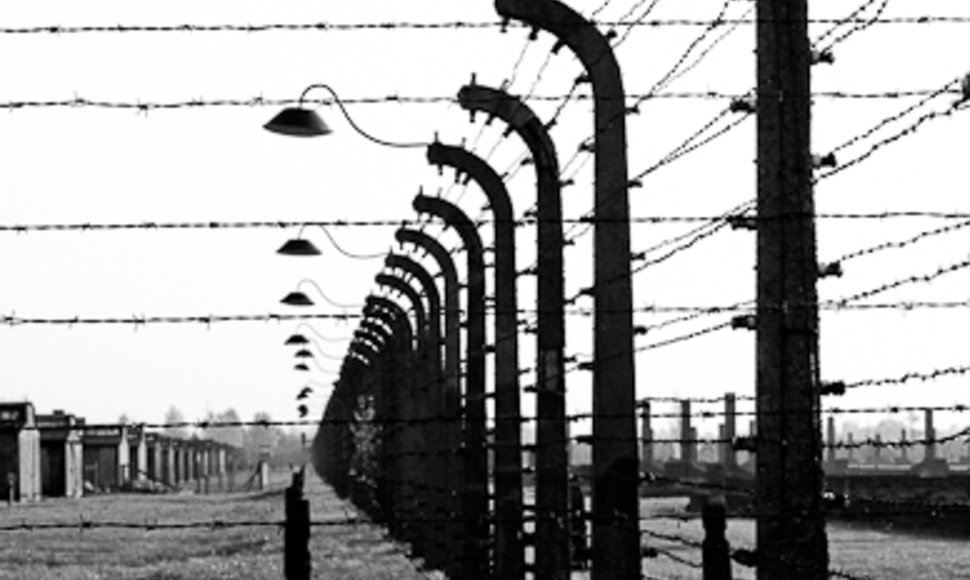Now a generation removed, Balzekas and others are coming to terms with the complexity of their homeland's history.
"The telling of Lithuanians' history was tied to the history of the Holocaust around Europe," said Balzekas, whose father-in-law founded the Balzekas Museum of Lithuanian Culture in Chicago. "These war crimes did not exist in isolation. There were terrible things happening. ... That history, too, has to be known and shared. It's a little less difficult for us who might be a little more detached and look at things from a safer vantage point."
As Chicago-area Jewish congregations on Thursday mark Holocaust Remembrance Day, known as Yom Hashoah, and call to mind the atrocities their forebears suffered, members of Chicago's Lithuanian community — one of the largest outside Eastern Europe — are acknowledging the crimes both inflicted upon and committed by their ancestors during that time.
There's a lot of difficult history to go around in Lithuania. There are the horrors of the Nazi years, the horrors of the Soviet era. Sometimes those histories seem so disparate that they seem irreconcilable. But it's important for us to sit down together and talk across cultures and consider that history together.
"We need to know what happened, including what people from our own country did, so this doesn't happen again," said Al Domanskis, a Chicago lawyer who is corporate secretary of the city's Lithuanian Foundation. "You walk through Vilnius, a city that was once a third Jewish. Do people know? We need to know that. We also need to know what we did was wrong. Not that we're a terrible people, but obviously Lithuanians participated."
Earlier this month, the Lithuanian government designated the Foundation for Lithuanian Jewish Heritage to get compensation for former Jewish communal property. The first restitution payments will support needy Lithuanian Holocaust survivors, while additional money will help support Jewish education and cultural preservation in the Eastern European nation.
Lithuanians in diaspora said they share that desire for resolution. Balzekas said the Chicago museum opened in the 1960s to preserve the Lithuanian language and culture as the Soviets tried to erase and rewrite history. With that in mind, Balzekas said the museum has considered a major redesign that would include Lithuania's Jewish heritage.
On April 29, author Ellen Cassedy will join novelist Ruta Sepetys at the museum for a discussion about Lithuania's dark years during the 20th century.
The authors will cap a series of exhibits and events at the museum marking 70 years since the start of Soviet deportations of Lithuanians to Siberia. Cassedy will read from her memoir, "We Are Here: Memories of the Lithuanian Holocaust." Sepetys, an American of Lithuanian descent, will read from her young-adult novel "Between Shades of Gray."
"There's a lot of difficult history to go around in Lithuania," said Cassedy, a Jewish author of Lithuanian descent from the Washington area. "There are the horrors of the Nazi years, the horrors of the Soviet era. Sometimes those histories seem so disparate that they seem irreconcilable. But it's important for us to sit down together and talk across cultures and consider that history together."
Earlier this week, 17 honorary consuls to Lithuania from across North America and the Lithuanian ambassadors to Canada and the U.S. met with local Lithuanian and Jewish leaders in Chicago to discuss the nation's efforts to make up for its past mistakes.
Daniel Elbaum, regional director of the Chicago chapter of the American Jewish Committee, said he appreciates Lithuania's attempts to resolve unfinished business that was either postponed by the silence of the Cold War era or eclipsed by the pain of the Soviet oppression.
"It's important for us to remember the history of Lithuanians and Jews goes back 1,000 years," he said. "The Holocaust is part of it. But it's not all the history. These discussions in Lithuania, because of the Cold War that existed afterward, were given a 50-year moratorium."
Now that the moratorium has lifted, a new generation must lead the reconciliation, he said.
"For people who lived through those terrible times personally, it may be inappropriate to move on beyond hatred," Cassedy said. "But for other generations, it's time for us to listen to each other. It's time to be able to appeal to each other as moral beings with the capacity for moral choice. That's what will prevent future genocides."












